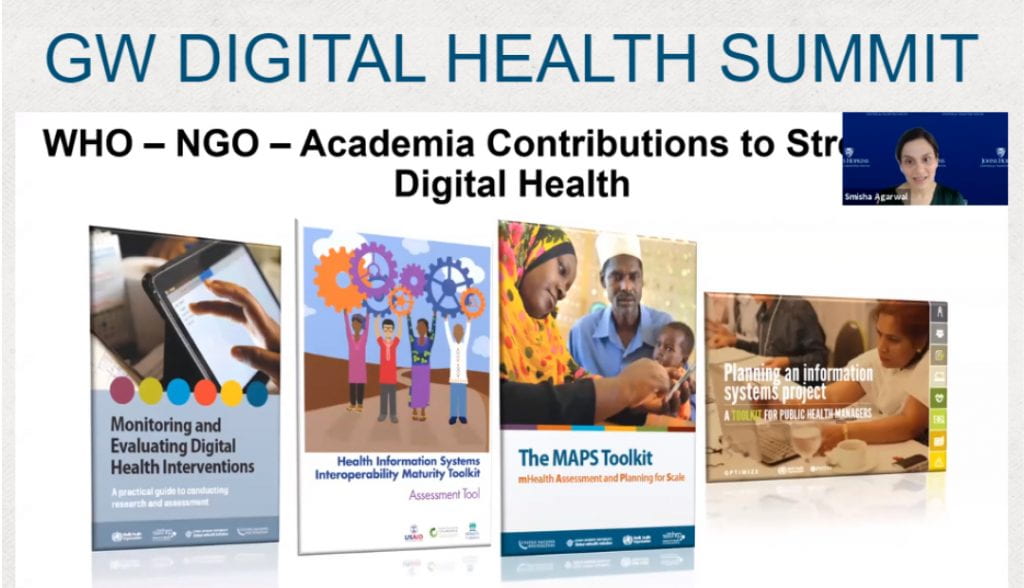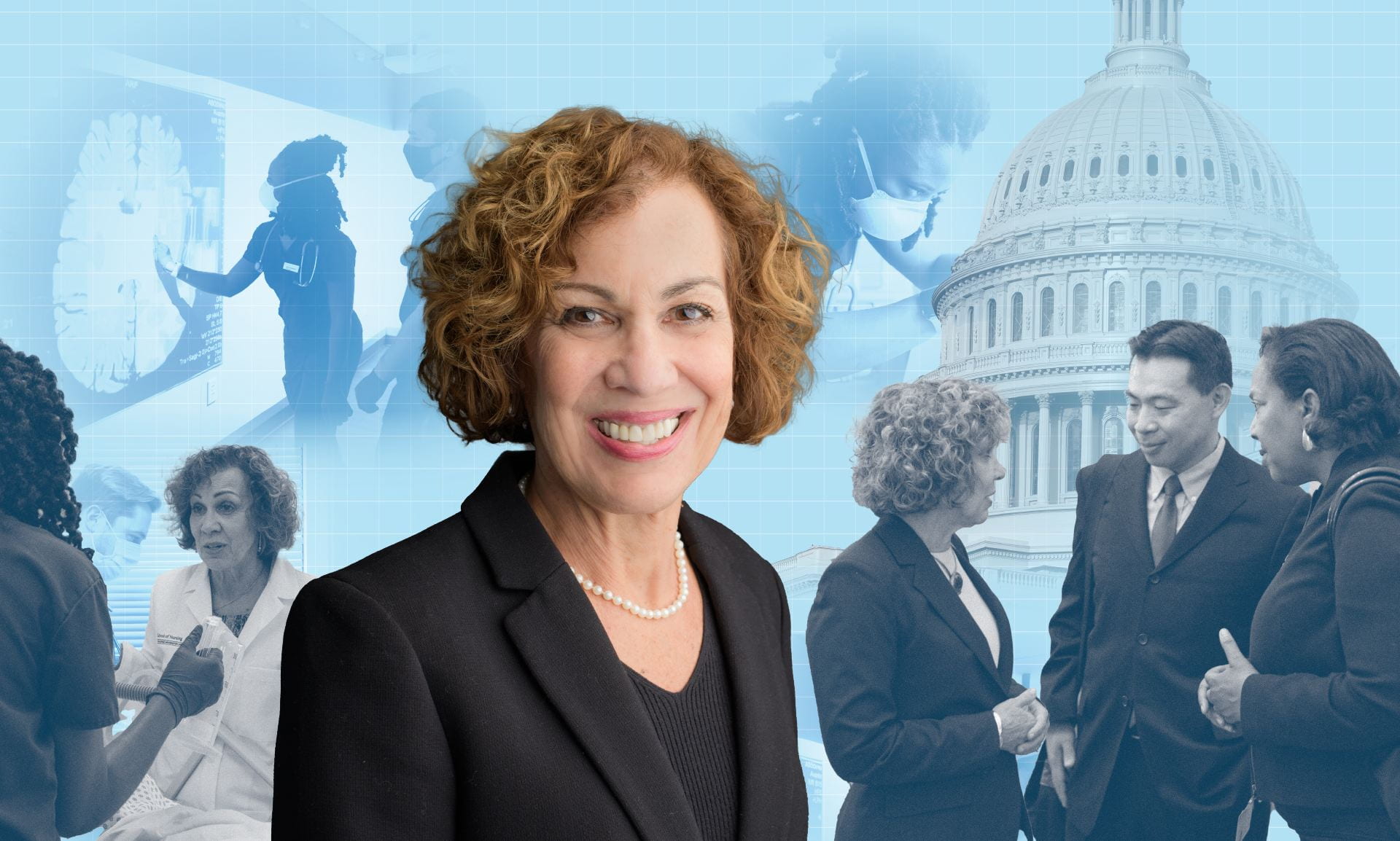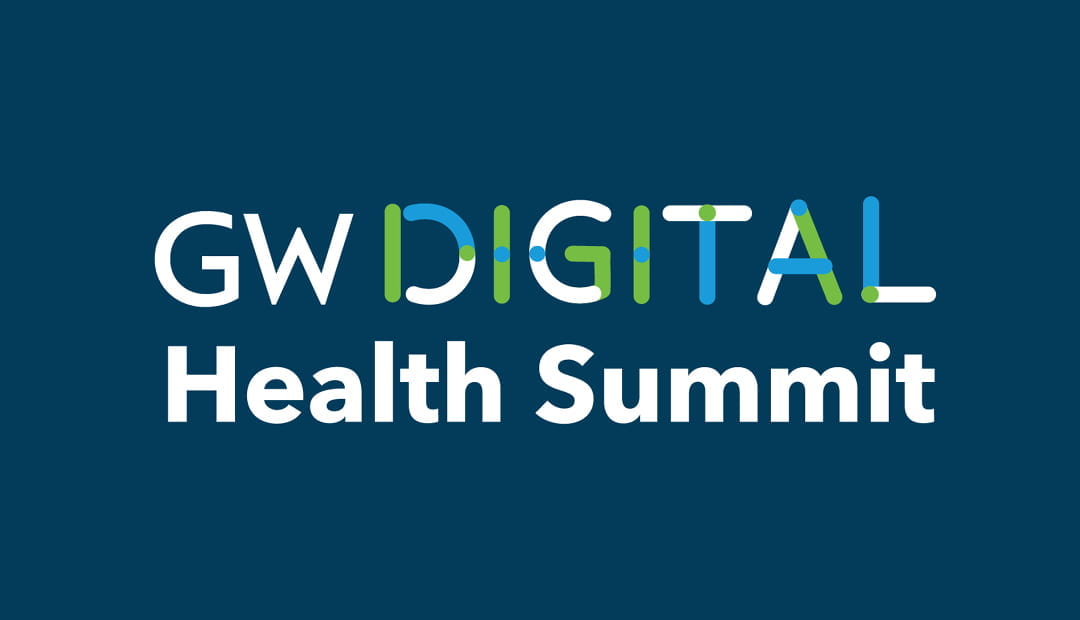GW’s inaugural Digital Health Summit looked at how technology has transformed the healthcare landscape.
The Digital Health Summit immersed George Washington University in the world of health care as defined by digital technology, bringing together over three days an interdisciplinary group of educators, clinicians, health system leaders and industry innovators.
GW Nursing Dean Pamela Jeffries said the COVID-19 pandemic made clear the necessity to adopt digital health solutions for the delivery of health care using technologies that are rapidly evolving and innovative approaches that connect patients and families in communities with the health care system.
The summit was co-hosted by GW Nursing, the School of Medicine and Health Sciences, the Milken Institute School of Public Health, the School of Engineering and Applied Science and GW Medical Faculty Associates. Over three days in mid-April, sessions offered discussions on topics such as what academic institutions can learn from practice institutions, how to translate innovation from the corporate sector to healthcare and using digital health for evidence-based practice and research.

The virtual assembly heard from among others imminent corporate leaders such as Heather Cox, chief digital health and analytics officer for Humana, Kristi Henderson, senior vice president for the Center of Digital Innovation at Optum Health, and Karen DeSalvo, chief health officer at Google Health.
“So much of what we need to do as the next phase in using data and technology in health care is simply just making sure that we have the right information and that we have transparency in operability and accessibility and understand consent and privacy,” Dr. Salvo said.
Bringing the three-day virtual summit to a close, Dr. Jeffries and Marc Garbey, CEO of ORintelligence, an information technology firm and consultant to the GW School of Medicine and Health Sciences, engaged Dr. Salvo in a “fireside chat” where she shared her experiences as an internist new to digital technology. She found herself providing urgent care during Hurricane Katrina at a time where she was unaware of digital technology—including not knowing what a text message was.
“There was a little envelope on my phone that wouldn’t go away,” she said, laughing.
From clinical and public health work she moved on to policy as an assistant secretary for health in the Department of Health and Human Service in the Obama’s administration, where she helped to bring federal health policy in line with the rapidly evolving field of telehealth. She currently leads a team of experts at Google Health in technological health care innovation.
When Dr. Jeffries asked what was the major challenge to digital health systems, Dr. Salvo said “equity.”
“The pandemic has, as many crises do, shown a spotlight on the fact that even a virus that theoretically should have an equal impact on a community. . .has a different impact because there’s already so much difference in access, outcomes and other underlying health issues,” she said.
Dr. Salvo said addressing these inequities would take more than just great medical care. Public health systems would have to be modernized and comparable social care data scaled up. “We were not as well trained in the U.S. context about understanding that most people’s health is driven by where they live and learn and work and play,” she said.
But if the pandemic revealed inequities, it was also a key driver in the uptake of telehealth, she said, “and clearly showed us that technology is a viable option in the digital toolbox.”
“It is so much easier to connect with someone to get the help you need…when that can be done virtually,” said Dr. Salvo, adding that it is essential the next generation of doctors and nurses are trained to use those digital tools.
She reminded the audience that Google is first and foremost a consumer company that has partnered with companies such as Fitbit Inc. and Mayo International Health on projects. As a business, Google has an incentive to share data, she said. “We’re all connected, and so the data has to be all connected in ways that are private and secure,” she said. “That allows us to not miss what’s coming next that might be impacting the population’s health or a person’s health.”
AUTHOR B.L. Wilson

